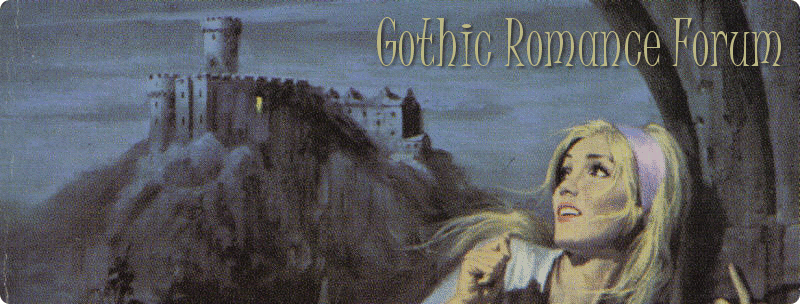12-21-2007, 12:45 AM
Thanks for the overview! I wish I had something as valuable to post, but there 's very little to add.
The one thing I would say though is that, as a modern reader, Jane Eyre speaks the most to me. The Castle of Otranto is clearly dated and its value lies as being one of the birth mothers of the Gothic novel. One would think that Rebecca would be more accessible because it was published in 1938 while Jane Eyre came out in 1847. But that's not the case at all.
As mentioned in another thread, the character of the narrator in Rebecca is that of a weak young woman. One who has no sense of identity except in relation to her husband. She is so passive that one forgets she even exists in the last part of the book. She is insecure, shy and impressionable.
In contrast, I keep thinking of the scene when Jane and Rochester express their love.
"Do you think, because I am poor, obscure, plain and little, I am soulless and heartless? You think wrong!-I have as much soul as you-and full as much heart! And if God had gifted me with some beauty, and much wealth, I should have made it as hard for you to leave me, as it is now for me to leave you! I am not talking to you now through the medium of custom, conventionalities, nor even of mortal flesh; it is my spirit that addresses your spirit; just as if both had passed through the grave, and we stood both at God's feet, equal-as we are!"
To me, Jane and Rochester ARE equals. The narrator and Maxim in Rebecca are not. I would probably have to read the authors' biographies to understand why the difference.
The difference is especially amazing when you think that Jane Eyre was written at a time when women couldn't even vote and Rebecca was written when they could.
The one thing I would say though is that, as a modern reader, Jane Eyre speaks the most to me. The Castle of Otranto is clearly dated and its value lies as being one of the birth mothers of the Gothic novel. One would think that Rebecca would be more accessible because it was published in 1938 while Jane Eyre came out in 1847. But that's not the case at all.
As mentioned in another thread, the character of the narrator in Rebecca is that of a weak young woman. One who has no sense of identity except in relation to her husband. She is so passive that one forgets she even exists in the last part of the book. She is insecure, shy and impressionable.
In contrast, I keep thinking of the scene when Jane and Rochester express their love.
"Do you think, because I am poor, obscure, plain and little, I am soulless and heartless? You think wrong!-I have as much soul as you-and full as much heart! And if God had gifted me with some beauty, and much wealth, I should have made it as hard for you to leave me, as it is now for me to leave you! I am not talking to you now through the medium of custom, conventionalities, nor even of mortal flesh; it is my spirit that addresses your spirit; just as if both had passed through the grave, and we stood both at God's feet, equal-as we are!"
To me, Jane and Rochester ARE equals. The narrator and Maxim in Rebecca are not. I would probably have to read the authors' biographies to understand why the difference.
The difference is especially amazing when you think that Jane Eyre was written at a time when women couldn't even vote and Rebecca was written when they could.




